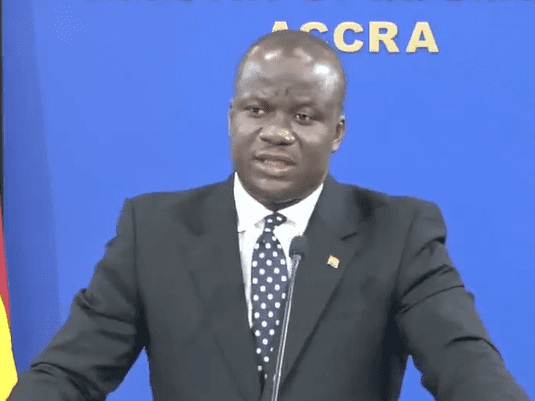Research by a consortium including the Institute for Statistical, Social and Economic Research (ISSER) has revealed that Ghana loses more than $2 billion in taxes alone due to the undervaluation of gold exports.
The study spanning three political administrations identified that Ghana’s exports were undervalued by an estimated $8.3 billion between 2011 and 2017.
According to the group, the research was fixated primarily on commodities like cocoa and gold, because “these are two of the main resources that Ghana exports”.
ISSER and its partners including the Graduate Institute of Geneva undertook the study as part of the Curbing Illicit Financial Flows (IFFs) research project, funded by the Swiss Programme for Research on Global Issues for Development.
Presenting details of the study, Senior Economic Researcher at ISSER and member of the research team, Dr. Ama Ahene-Cudjoe, indicated that the project used a novel method to gather data from the Ghana Revenue Authority and other government agencies.
“We estimated that gold was abnormally undervalued at about $8.3 billion at constant prices and the base year is 2011. Our study was between 2011 and 2017. And in current prices, this is about $3.8 billion and this constitutes approximately 11% of the total value of gold exported during this period.”
“The top five destination countries of these undervalued gold exports include major gold refining destinations, India, South Africa, United Arab Emirates, Switzerland and Portugal. This represented major gold refining, trading and manufacturing destinations”.
Dr. Ahene-Cudjoe said the revelation about tax and revenue losses due to IFFs is critical when you consider the fact that gold accounts for most of Ghana’s mineral exports.
“In 2017, gold accounted for 96.4% of total earnings from mineral exports from Ghana,” she said.
Senior research fellow at ISSER, Fred Djanku is however optimistic that if measures are put in place to reduce trade-related illicit financial flows, government will raise revenue to finance its major flagship programmes.
“So, between 2011 and 2017, we realized that about ¢7.8 billion is undervalued every year. Now if you take about 25% of that which is the taxes that could have accrued to Ghana, that is about ¢1.8 billion a year. Now we are talking about E-Levy which is government trying to get more revenue.
"What it means is that if we are able to reduce this trade-related illicit financial flows by strengthening the governance systems, the data management systems and the policy and regulatory environment, what it means is that we can get more taxes from these resources than we are getting now”
“Government can then raise more revenues to be able to finance all the projects we know we have a huge infrastructure gap that we need to fill. We have flagship programmes that Ghana has to finance, so we are arguing that this is one of the ways by which we can raise more revenue”, he pointed out.
“This whole agitation of e-levy and all these taxes can come down if we are able to raise more revenue through other channels” he added.
The group intends to engage stakeholders, government institutions and the private sector to discuss how their findings can be incorporated into policies and more importantly how to implement these policies.
Latest Stories
-
Africa Development Council urges ECOWAS action amid Togo’s constitutional crisis
5 hours -
Situate power sector challenges within the context of the 4th Republic – Jantuah
6 hours -
Empowering Youth through IT Education: IT For Youth Ghana College leads the way
6 hours -
Trump criminal case: Full 12-person jury seated in Manhattan
6 hours -
Israel Gaza: US again warns against Rafah offensive
6 hours -
Man arrested in Poland over alleged Russia plot to kill Zelensky
6 hours -
Over 100 arrested as US college Gaza protest cleared
6 hours -
Justmoh Construction begins work on dualization of Takoradi-Agona Nkwanta road
6 hours -
MGL visits Dumor family following passing of Mawuena Trebarh
7 hours -
In Pursuit of Peace and Unity: Interfaith Leaders Promote Dialogue – Chief Doli-Wura to Africa Union
7 hours -
TEWU raises concern over quality of food served in SHS
8 hours -
Ghanaian students gear up for Robotics World Championship
8 hours -
Political interference makes public sector managers appear incompetent – Dr Manteaw
8 hours -
Police arrest truck driver alleged to have caused train crash
8 hours -
CAF Confederation Cup: Dreams FC depart to Cairo ahead of semis first leg against Zamalek
9 hours

